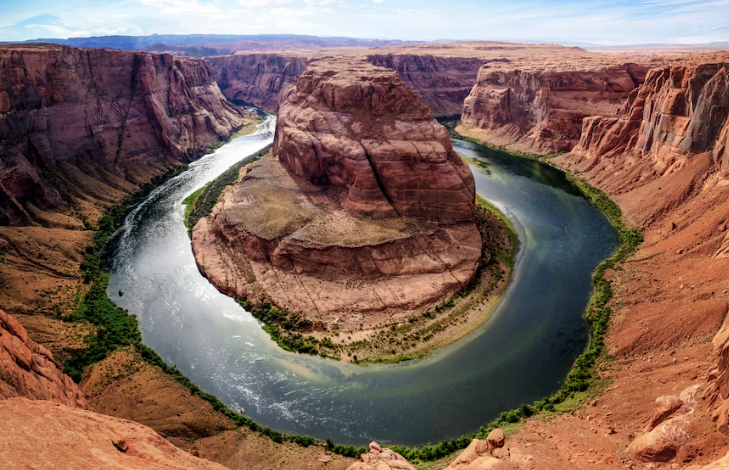SCOTUS Rules Against Navajo Nation in Water Rights Case
In an end to a decades-long legal challenge, the US Supreme Court ruled on Thursday that the federal government is not obligated to assist the Navajo Nation in securing water rights. The conclusion was reached under the terms of an 1886 treaty that guaranteed the tribe a permanent homeland.

Facts
- In an end to a decades-long legal challenge, the US Supreme Court ruled on Thursday that the federal government is not obligated to assist the Navajo Nation in securing water rights. The conclusion was reached under the terms of an 1886 treaty that guaranteed the tribe a permanent homeland.1
- The majority opinion, written by Justice Brett Kavanaugh, held that the treaty does not require the government to take "affirmative steps" in this regard, such as formulating water use plans or building infrastructure. He further added that it is not up to the Judiciary to update the law.2
- Justice Neil Gorsuch joined the court's three liberal members in dissent, arguing that the Navajo are merely asking the federal government to "identify the water rights it holds for them."3
- The case rested on the 1908 Supreme Court ruling that safeguarded the rights of Native Americans living on reservations to access sufficient water. Reportedly, just short of one-third of the roughly 175K residents in the US' largest reservation don't have running water in their homes.4
- The more than 17M-acre Navajo reservation in the strained Colorado River basin has struggled with a lack of water infrastructure. In 2021, a San Francisco federal appeals court ruled the tribe could sue over water security.5
- The federal government and states involved argued in court that the Navajo demands would disrupt the current water management plan. States in the Colorado River basin have mutually agreed to temporarily cutback on their water use, with the Interior Dept. revising water use guidelines.5
Sources: 1NBC, 2CNN, 3New York Times, 4Al Jazeera, and 5The Hill.
Narratives
- Establishment-critical narrative, as provided by Native News Online. The US has once again broken a treaty obligation made to the indigenous peoples of the country. It does not make sense that water wouldn't be considered integral to a permanent homeland, and the court has put expediency over what is right. For decades, the Navajo have tried to ascertain the water rights owed to them by the federal government, who should spend less time taking the tribes to court and more time helping improve life on the reservation.
- Pro-establishment narrative, as provided by Bloomberg. Climate change is straining the Colorado River basin, which is a lifeline for tens of millions of Americans. Federal and state governments have needed to make hard choices in order to preserve the integrity of the river for the long-term. Even in light of a recent deal between states, there are still deep concerns about water usage in the Southwest, and the Navajo are not the only ones suffering. The US cannot afford to upend the management of the Colorado River at such a crucial juncture.






